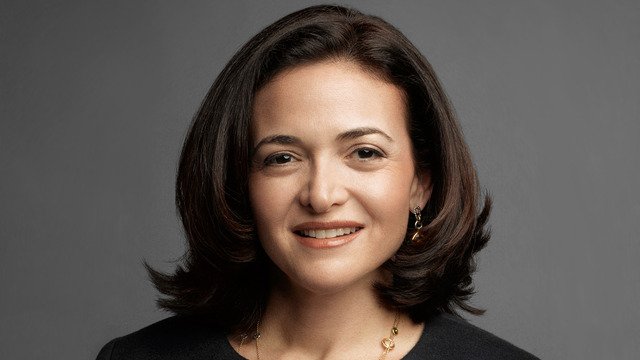Stop Searching For A Role Model
A few months before I graduated from business school, my classmate sent me Sheryl Sandberg’s famous “sit at the table” Ted Talk. I immediately identified with Sheryl and developed my first real “girl crush.” I told my colleagues, friends, husband, really, anyone who would listen, about my role model and vilified anyone who dared speak out against her or the decisions she made. Sheryl was perfect. Sheryl and I got serious, fast. In my first (miserable) job after business school, I constantly asked WWSD each time my boss sent me a micromanaged email with extra smiley faces asking me to correct a typo in a PowerPoint slide at 11pm. With Sheryl egging me on, I quit and was quickly offered a leadership role in a young company.
I was totally unqualified (or so I told myself, much to Sheryl’s chagrin). That didn’t matter. With Sheryl by my side, I reminded myself that a man in my position would not doubt his qualifications and would simply negotiate for more money (I did and it worked). I came charging into my new position, working long hours, taking a seat at the table, and commanding more responsibility. Again, it worked. I built a department from the ground up and started seeing results.
Two years later, I had my first child. Again, Sheryl led me through this transition. I worked through my maternity leave, but cut back my hours when I returned full time (and by cut back, I left at 5:35pm, but was back online by 8 or 9pm). I found a fabulous child care center and achieved a balance I felt good about, even making sure that I stuck to my daily workout routine. I beamed whenever a friend or colleague said, “You’re just like Sheryl” or “You’re leaning in!”
Don’t get me wrong. It hasn’t been all rainbows and unicorns. Being a working mom is hard as shit. I’ve since given birth to a daughter and now have two under the age of three. I constantly worry that I’m failing them. That I’m not enough for them, for my husband, for my friends, for my parents. Oh, and I'm pretty much always exhausted.
But we’re making it work. We lean on grandparents (a ton) and I outsource anything I can afford. My husband and I make time even when we don’t have it. We lift each other up and remind ourselves that while we’re tired, it’s not only temporary, it’s worth it.
It wasn’t until I was pregnant with my daughter that I realized something had changed. There was a shift in how I was approaching decisions and mapping out my life. I was no longer asking what Sheryl would do, but instead, what Lisa would do.
Sheryl is awesome, and I still have the utmost respect for her (and my crush remains), but she’s Sheryl and I’m me. She taught me some great lessons, but my success is a result of my decisions. I chose to leave a job where I didn’t feel valued. I chose to take a leap of faith and work my ass off. And I chose to sit at the table, make hard calls, and command respect as the youngest director in my company.
Time and time again, I’ve referred to Sheryl as my role model, but it was just the other day that I looked up the definition of role model: a person looked to by others as an example to be imitated.
We are constantly looking to “role models,” for lessons about how to lead our lives. And it's wonderful to learn from those who have come before, who share are values, and who have seen tremendous success. Where I think we run into problems - or at least, where I found myself - is when we aren’t just looking for lessons, but find ourselves imitating our role models.
A while back I read an article by a young woman criticizing Marissa Mayer’s decision to return to Yahoo! after only a two-week maternity leave. She wrote that Mayer, as a role model for young women, was sending the wrong message:
It sends a signal to young female professionals that if you want to take more than two weeks off when you have a kid, perhaps the C-Suite isn’t for you… She is making what she attained look unrealistic and perhaps deterring young women from aspiring to be CEOs.
She argues that Mayer has a responsibility as a role model for other women to either take a longer maternity leave or not publicize her decision to take a shorter maternity leave. But if Mayer made decisions simply because she was a role model, would she really still be a role model? Would we look up to someone who based major life decisions on what the masses might think?
Maybe this young woman wasn’t a fan of Mayer’s decision, but let’s be clear: it was her decision to make. And that is my fear with our idolization and imitation of role models. In our search for the women who have leaned in, who have “done it” and who we can emulate, are we missing the most important woman of all?
Maybe, just maybe, we don’t need these role models. At least not as we have been thinking of and using them. When we find our identity in someone else, how can we truly lead and pave our own way?


